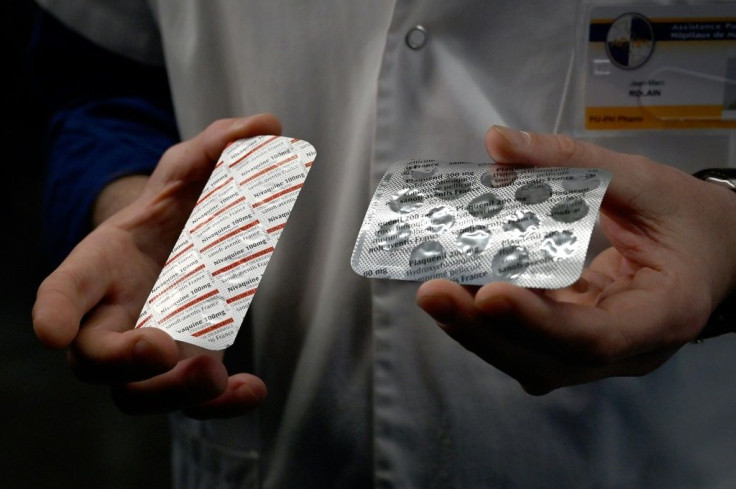WHO Suspends Trial Of Trump's Hydroxychloroquine As Coronavirus Treatment Over 'Safety' Concerns
KEY POINTS
- The World Health Organization has stopped giving hydroxychloroquine to patients enroled in its international clinical trials on the drug
- It's alarmed by the results of a massive study released last week affirming previous findings hydroxychloroquine is associated with increased risk of death
- The study couldn't find any benefit from taking hydroxychloroquine
The World Health Organization (WHO) took direct aim at hydroxychloroquine, which President Donald Trump alleges he took daily for over a week to prevent COVID-19, and temporarily halted its "Solidarity Trial" of the anti-malarial drug due to patient safety concerns. Only the hydroxychloroquine part of the trial has been suspended, however.
The ongoing Solidarity Trial involves 3,500 patients in 17 countries. Overseen by WHO, the clinical study is an effort to find new treatments for COVID-19. These treatments include the controversial anti-malarial drug, hydroxychloroquine, which is being pushed by both Trump and Brazilian President Jair Bolsonaro. Patients enrolled in the trial were randomly assigned to be treated with hydroxychloroquine and three other experimental drugs for COVID-19 in various combinations.
WHO Director General Tedros Adhanom Ghebreyesus on Monday said the agency's Executive Group implemented a temporary pause of the hydroxychloroquine arm within the Solidarity Trial while safety data is reviewed by the Data Safety Monitoring Board.
"The review will consider data collected so far in the Solidarity Trial and in particular robust, randomized available data to adequately evaluate the potential benefits and harms from this drug (hydroxychloroquine)," said Tedros.
"The other arms of the trial are continuing," according to Tedros. "This concern relates to the use of hydroxychloroquine and chloroquine in COVID-19. I wish to reiterate that these drugs are accepted as generally safe for use in patients with autoimmune diseases or malaria."
"The Executive Group has implemented a temporary pause of the hydroxychloroquine arm within the Solidarity Trial while the data is reviewed by the Data Safety Monitoring Board"-@DrTedros #COVID19
— World Health Organization (WHO) (@WHO) May 25, 2020
WHO Chief Scientist Soumya Swaminathan said the pause was prompted by study published May 22 in the prestigious peer-reviewed medical journal, The Lancet. This study was world's largest yet examining hydroxychloroquine as a cure for COVID-19.
The retrospective and non-randomized study involved 96,032 volunteers in 671 hospitals on six continents. It found hydroxychloroquine didn't appear to help patients hospitalized with COVID-19. Instead of becoming a cure, it was associated with an increased risk of death and heart complications.
The study also couldn't find any benefit from taking hydroxychloroquine in those given the treatment compared to volunteers that didn't receive any of the combinations of hydroxychloroquine and a macrolide antibiotic. Ominously, the study found an increased frequency in abnormal heartbeats in those taking hydroxychloroquine. Those that took the drug also had a higher risk of death compared to those not given the drug.
The study examined the outcomes of patients treated with hydroxychloroquine, hydroxychloroquine and a macrolide antibiotic such as azithromycin, chlroquine, or chlooquine and a macrolide antibiotic.

© Copyright IBTimes 2024. All rights reserved.




















